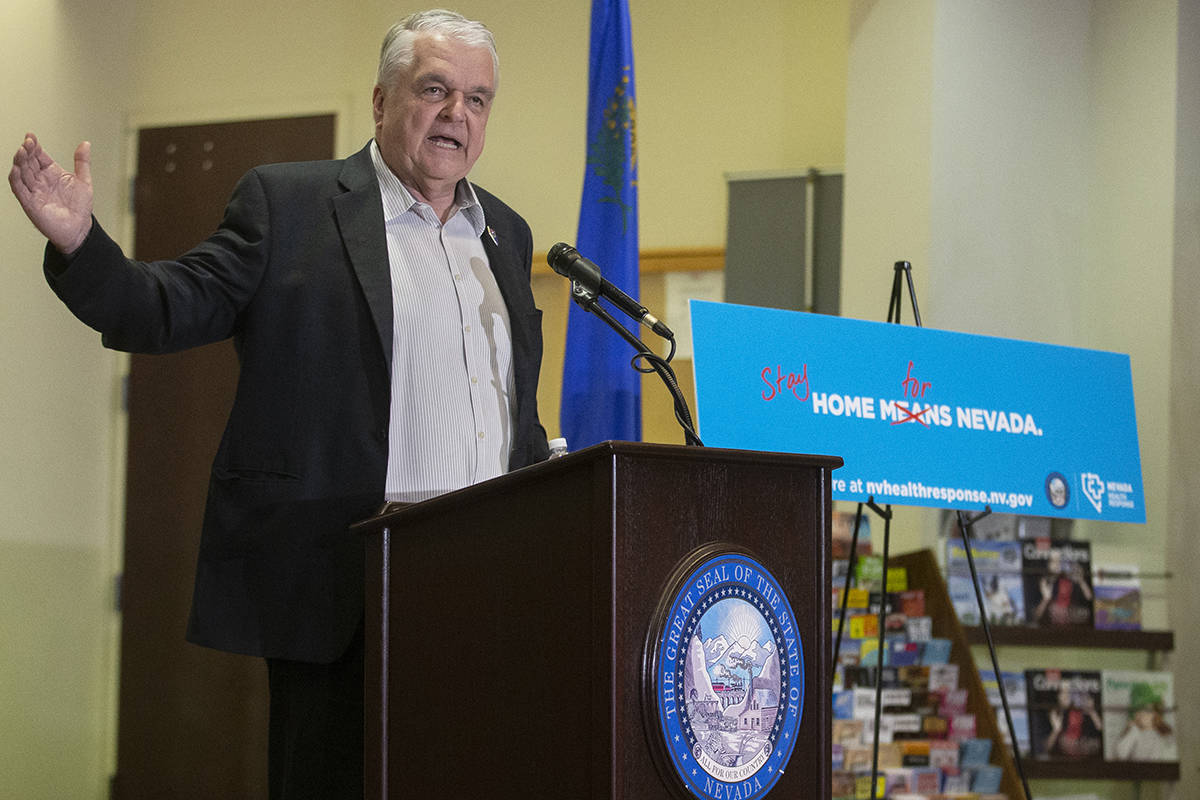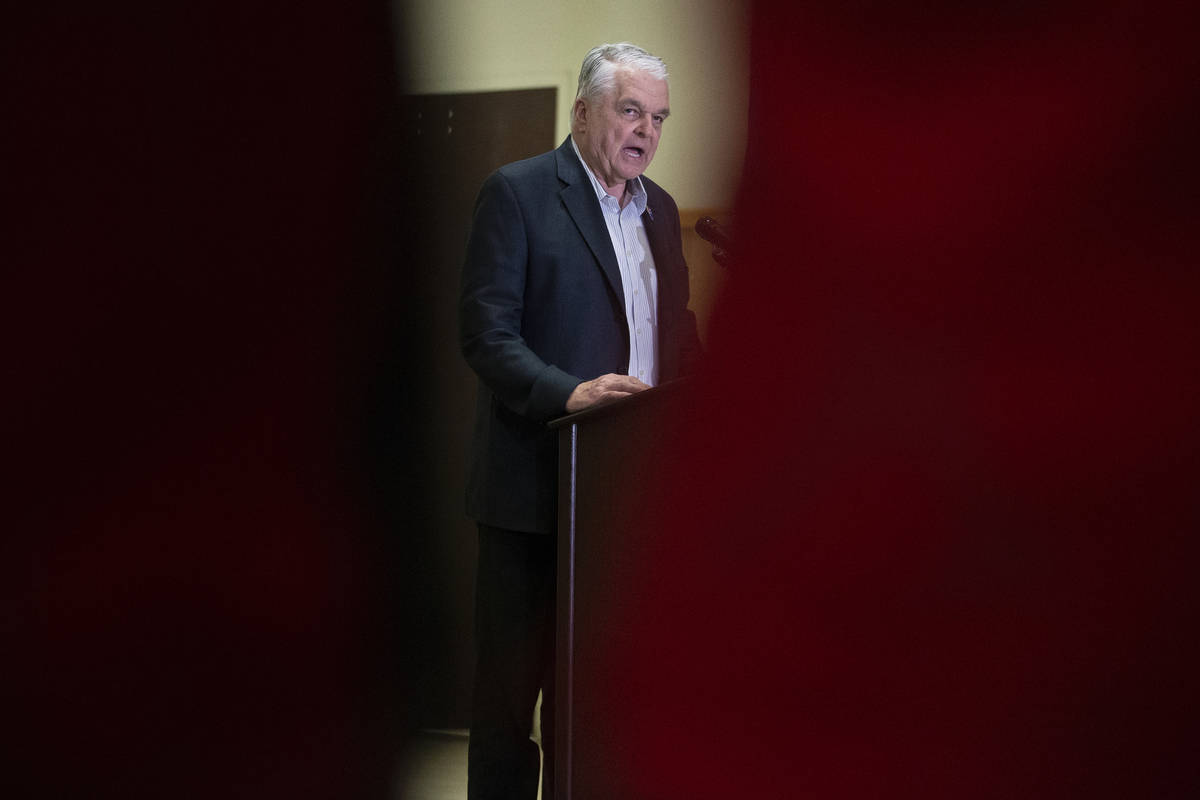STEVE SEBELIUS: Coronavirus shows Nevada’s economy is fragile
They say we’re #VegasStrong.
But the coronavirus has proved one thing: We’re not.
Nevada’s economy remains just as vulnerable to a slowdown in tourism wrought by a global pandemic, terrorist attack or general economic downturn as it was on the morning of Sept. 11, 2001.
And despite years — decades! — of warnings and promises to diversify the economy so that we are not so reliant on gaming and tourism, the sad fact is that we’ve made virtually no progress.
As a result, we’re right back where we were, looking at an economic collapse, high unemployment and a state budget deeply in the red with very few options to get us out.
Oh, yes, Nevada will survive. The state is hardy and its people long experienced at scraping a living from the hardened desert landscape.
But the coronavirus presents challenges that this state has never seen.
Strip casinos didn’t close en masse after Sept. 11. They didn’t close in the Great Recession. They didn’t close after the Oct. 1 massacre. But they’re closed now, along with scores of other businesses considered “nonessential.” (It’s worth bearing in mind that, to employees and owners who depend on that business for a living, every business is essential.)
That’s certainly the case for the state of Nevada.
Fully 46.4 percent of the state budget’s general fund is made up of the state’s share of the sales tax and gaming taxes, according to a budget breakdown prepared by the Guinn Center for Policy Priorities. Another 15.2 percent is made up of the payroll tax paid by all Nevada businesses.
Now that we’ve closed casinos and nonessential businesses, those revenues aren’t coming in. And when shuttered businesses are forced to lay off employees, they stop paying the payroll tax. At the same time, unemployment insurance claims rise, taxing the state’s insurance fund. (In the recession, Nevada had to take out a loan from the federal government to pay claims and then pay it back with interest.)
Nevada’s budget is often depicted as a three-legged stool. In challenging times, it’s more like riding a tightrope on a unicycle in high winds.
That’s why the Brookings Institution rates Las Vegas as one of the metropolitan areas most likely to be hit hardest by a “coronavirus recession.” That’s because we have a high concentration of jobs in industries at the highest risk of being impacted by the coronavirus, namely leisure and hospitality.
Brookings estimates fully 33.8 percent of Las Vegas’ jobs — 342,050 — are in industries at risk in a recession.
“The numbers also underscore the massive size of the nation’s reeling leisure and hospitality sector. Kahului, Hawaii; Atlantic City, New Jersey; and Las Vegas all fall into the top five most recession-vulnerable metro areas, each with more than a third of their workforce in industries threatened by coronavirus-related uncertainties,” the Brookings report reads. “Among the nation’s 100 largest metro areas, Las Vegas is most exposed, followed by Orlando, Florida, the theme park capital of the country.”
If we’re most vulnerable, who’s least? Brookings answers: “Among the 100 largest metro areas, the economically safest are mostly tech-oriented university towns. Provo, Utah, is the least exposed, followed by Durham-Chapel Hill, North Carolina; Hartford, Connecticut; Albany New York; and San Jose, California.”
Nevada has long sought to diversify its economy and, in certain areas, some progress has been made. Apple has a presence in Reno. The Tahoe-Reno Industrial Center is now home to a battery-making facility for electric car company Tesla. Southern Nevada has made strides toward becoming a logistics hub. The Apex Industrial Park in North Las Vegas could someday be home to advanced manufacturing and development. Both UNLV and UNR have achieved R1 “very high research activity” status by the Carnegie Classification of Institutions of Higher Education.
But those efforts have fallen short when it comes to drawing diverse industries to town and expanding the economic base beyond tourism and leisure and the businesses that spring up to service them. And now, we’re caught once again staring a recession in the face.
After Sept. 11, Nevada officials vowed they would diversify the state’s economy. After the Great Recession, they said the same thing. Those vows have failed to produce significant results. Expect to hear more promises and more plans as the state inevitably recovers from the coronavirus impact.
Maybe this time it will actually happen.
Contact Steve Sebelius at SSebelius@reviewjournal.com or 702-383-0253. Follow @SteveSebelius on Twitter.
























